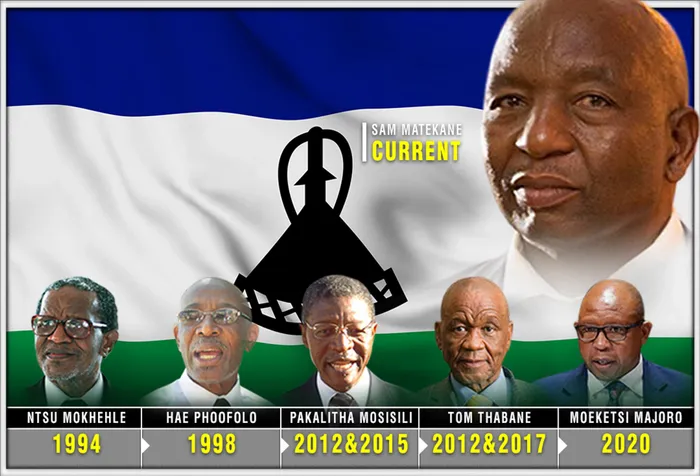Lesotho elections: shaking off the neighbour’s curse?

Graphic: Wade Geduldt/African News Agency (ANA) – The peaceful elections in Lesotho are commendable and indicative of the continued strive towards consolidating democracy in Africa, the writer says.
By Sethulego Matebesi
After years of political dominance in the Southern African mountain kingdom of Lesotho, the reign of the governing coalition of the All Basotho Convention (ABC) and the Democratic (DC) came to an abrupt end after the 2022 national elections.
In what has been described as the most eventful elections, the newly formed Revolution for Prosperity (RFP) party has won the elections with 56 of 120 seats. It has formed a coalition with the Alliance of Democrats (AD) and the National Independence Party (NIP). This continues the trend of coalition governments in Lesotho since 2012.
The peaceful elections in Lesotho are commendable and indicative of the continued strive towards consolidating democracy in Africa.
But there have also been widespread concerns about whether ABC will contest the election results. While ABC will be within its rights, any contest of the results accompanied by violence will not only lead to rising tension but will reinforce established negative trends rather than seeking new political directions.
In the context of the volatile political environment in Lesotho, the essential question should not be about political parties contesting the election results but how the country’s constitution will protect citizens’ fundamental and collective rights. Where will civil unrest or violence leave Lesotho citizens?
Voters in Lesotho have spoken, and loudly so. Therefore, they will want to maintain their rights or challenge any violation.
Reasons for ABC’s continued slide among voters
Trouble for ABC started long before the recent national elections. The party has been beset by political challenges that have become increasingly common among African political entities that fail to heed warning signals about internal fractures.
Foremost among the challenges of ABC, is that it failed to capitalise on the shift from the country’s constituency-based electoral system – dominated by the Basotho Congress Party between 1993 and 2012 – to a mixed-member proportional representation system that almost all parties that contested the poll got representation in the national parliament.
It seems that the ABC has been locked into pathways of internal conflict that saw two prime ministers being installed over the last five years.
Another glaring weakness of the ABC-led coalition was the unresolved differences in political ideology among the coalition partners. Consequently, an important political lesson was ignored: a pillar of democratic systems and practices that manifest genuine constitutionalism is domestic human rights institutions anchored into a system of international guarantees and concerned with what governments can and must not do to their citizens. Above all, the spirit of a constitution is expressed in, amongst others, manifest deeds, policies, laws, regulations, and their practical realisation.
A significant political shift that holds promise
The peaceful elections in Lesotho chronicle how the nation’s politicians have forged powerful coalitions to shape strategies and electoral changes.
However, at a perilous time of global inflation with countries facing increasingly gloomy developments in 2022 as economic risks – Covid-19 and further negative spillovers from the war in Ukraine – begin to materialise, many Southern African countries will have a keen interest in how the new Lesotho government will ensure political stability.
While many developed countries have strategies to mitigate these risks, such an option is not always available to sub-Saharan African countries.
From a South African standpoint, continued political instability in Lesotho will adversely affect its citizens and may further exacerbate low productivity growth in the mountain kingdom.
This will overwhelm the country’s already weak health services, worsen health outcomes, and decrease living standards.
As history has shown, South Africa bears the brunt of socio-economic instabilities in the southern African region. A case in point is the increasing number of Lesotho citizens who seek refuge in South Africa because of its favourable economic conditions.
This dependence on South Africa has often resulted in enduring ramifications regarding how the country deals with its national interests.
Undoubtedly, the elections in Lesotho represent a significant shift in coalition politics in the country.
Coalition governments remain the best available option to respond to the one-party dominance that once reverberated throughout Africa. Therefore, Lesotho has an opportunity to demonstrate to the world that governing coalitions can provide policy certainty while at the same time, avoiding governing paralysis and political divisions.
Whichever governance strategy the RFP-led coalition chooses, it remains essential to have a well-planned roadmap that considers ways of ending corruption, poverty, and socio-economic inequality in Lesotho.
Any road map that advances the interests of the poor and working class will not be easy to implement. However, such an approach will dissipate criticism that the coalition is yet another attempt by liberal free-market parties planning to advance the fortunes of their leaders.
This way, Lesotho will shake off the “neighbour’s curse” and rekindle the potential for a vibrant, peaceful democratic system that governs in the broadest public interest.
Matabesi is an Associate Professor at the University of the Free State.
This article is original to the The African. To republish, see terms and conditions.